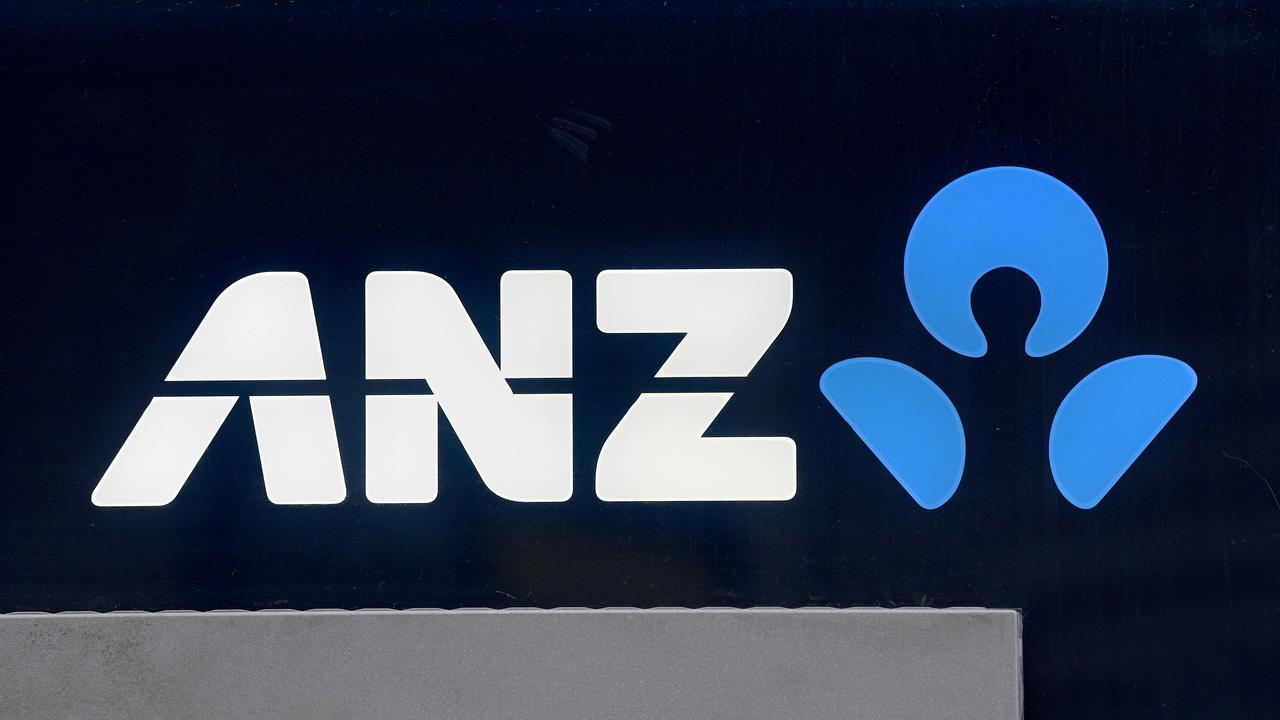Flight Centre sees soaring demand for business class travel to Europe, Asia and North America
Employees travelling for work are increasingly expecting, and demanding, business class tickets which has meant an uplift for Flight Centre’s corporate travel brands.
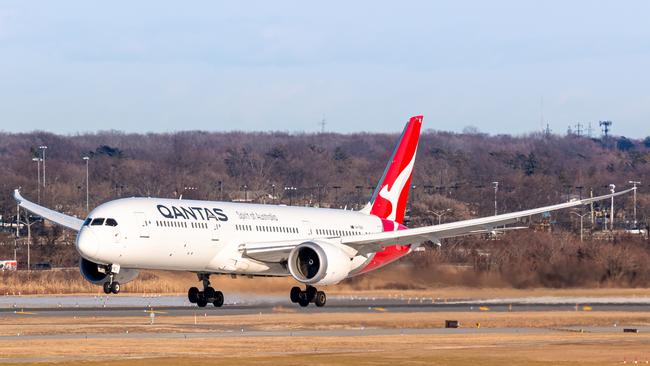
Business
Don't miss out on the headlines from Business. Followed categories will be added to My News.
Corporate travellers are leading the charge in a growing number of Australians who are opting to fly business class instead of economy amid a moderation in airfares as airlines continue to ramp up international operations.
Data from Flight Centre Travel Group shows there has been a 6 per cent uplift in business class bookings in the year ending June 2024, compared to the previous financial year.
It was led by international corporate bookings under the company’s flagship brands FCM Travel and Corporate Traveller, which were up 14 per cent.
Flight Centre Corporate Global chief operating officer Melissa Elf said more business travellers are demanding to be flown in premium cabins for better health and wellbeing, while workplaces saw it as a tool to attract and retain talent.
“Many of our corporate travellers are making the decision to book business or first class travel so they can get a decent sleep or continue to work productively if they’re travelling through the day,” she said.
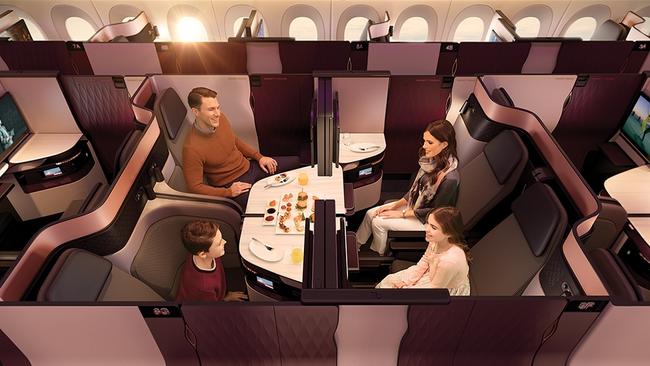
“It’s also becoming an expectation from employees, if they’re travelling long haul, they expect to travel business class, and if they don’t get that, they’ll look for a company that does.”
The most common destination for business class was Europe, followed by North America and then Asia. Year on year, business class bookings to Europe were up 9 per cent, North America was up 9 per cent and Asia was up 8 per cent.
International airline capacity had returned to about 95 per cent of pre-Covid levels in Australia compared to 101 per cent globally, according to Flight Centre. Ms Elf said Australia would reach and surpass 2019 levels this year.
“As the seat capacity increases, the actual seat costs are coming down, which we are seeing now,” she said.
The latest Bureau of Infrastructure and Transport Research Economics report for February showed that total seats made available on international scheduled operations to/from Australia during the month was 4.117 million compared to 4.34 million in the same period in 2019.
Ms Elf said there was also a shift by airlines to focus on improving their products to attract passengers. Qatar Airways unveiled an updated version of its popular QSuite this week, while Qantas is touting a new business class with sliding doors as part of its Project Sunrise endeavour.
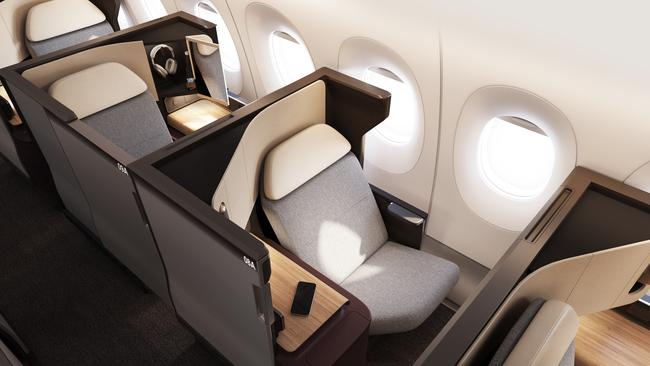
Ms Elf said that increased demand for business has also increased due to better availability of seats after the “leisure revenge travel” period in the period after pandemic restrictions lifted.
“The last year and a half has been a bit of a leisure revenge travel, where people had a heap of credits and were doing trips of a lifetime all in business class, which left little for the corporate travellers, who were paying sky high fares as well,” she said.
“But now that capacity is coming back online, we’ve got more airlines, you know, offering flights. I think leisure is still strong, but the revenge part has petered off a bit.”
Cathay Pacific has increased frequencies from several cities including a second flight from Brisbane to Hong Kong scheduled to begin, while Emirates will return to Adelaide in October and Qantas has commenced flights to Paris from Sydney via Perth.
American Airlines and Delta Air Lines will start seasonal flights from Brisbane to Dallas and Los Angeles respectively later this year.
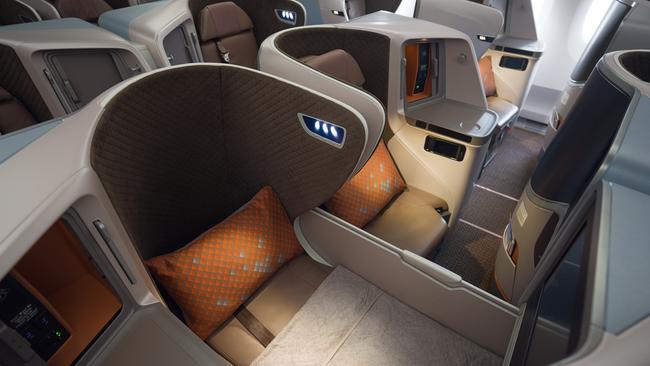
Internationally, business class had the highest demand to London, Singapore, Tokyo, Auckland and Shanghai. Domestically, destinations with the highest rate of corporate business class bookings were to Melbourne, Sydney, Perth, Brisbane and Adelaide.
According to Flight Centre Travel Group data, for First Class passengers, the most popular destination booked over the past year was Europe, with a massive 73 per cent of booking share, Asia followed with 13 per cent, and North America also had 13 per cent.
Ms Elf said Australians were increasingly seeing the value in ’bleisure’ travel, alongside a swelling trend of corporate hospitality around major events.
“This trend goes back to employer retention and attraction. So many now offer business class as part of their corporate travel policy, because employees are demanding it and expecting it,” she said.
It comes as new data from PassportCard shows that the average cost of a trip to Europe has jumped by 8 per cent to $10,861 in 2024, which has prompted 27 per cent of people to plan shorter trips.
Australia was ranked 12th in the world for expenditure on business travel, up from 13th last year, with $US23.9bn spent in 2023, according to analysis by the Global Business Travel Association.
More Coverage
Originally published as Flight Centre sees soaring demand for business class travel to Europe, Asia and North America




